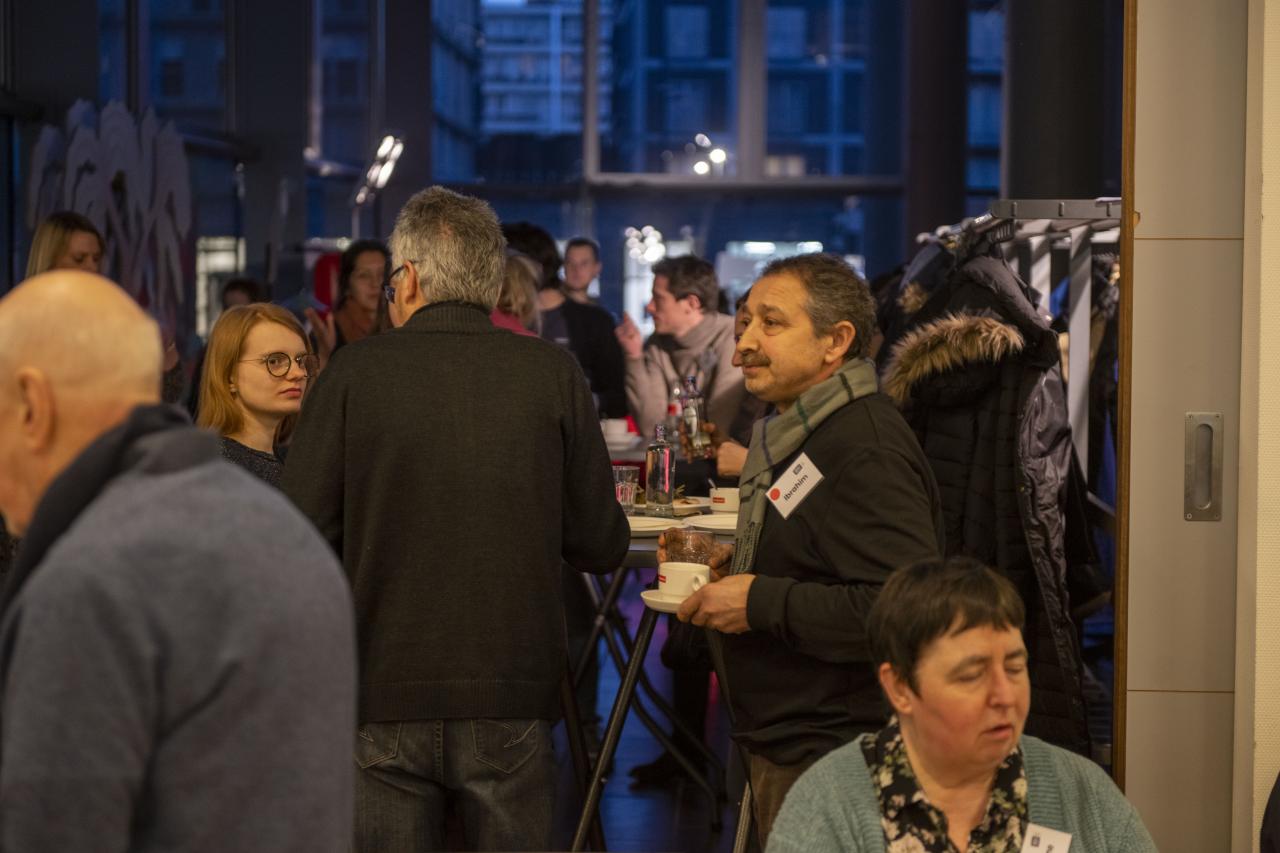At the end of September 2024, the city of Genk organized a moment of 'search for appetite' whereby various municipal services collaborated. The evening centered around the four Genk Habits and the question of how we can apply them in Genk. These habits were developed from a process involving a citizen panel of 22 citizens, called "The 22". The members of the citizen panel were randomly selected from the population register, specifically from 5,000 citizens, of whom 220 ultimately accepted the invitation.
These Genk habits are:
"IF I CAN BE ME, YOU CAN BE YOU" Residents of Genk are diverse and cannot simply be categorized. We want to be ourselves and show that. We also make space for other residents to do the same.
"AFTER 'HELLO', A PLEASANT INTRODUCTION AWAITS" When we meet each other, we say 'hello'. But truly getting to know each other goes deeper. Starting a conversation with a stranger is not easy, but those who have tried know that it boosts happiness and combats loneliness.
"A REAL CHAT SOLVES A LOT" Even though it takes effort to understand someone's opinion, we continue to engage in conversation. We realize that it is not our diversity that creates noise in communication, but rather the fact that we all view reality differently. Talking helps, and ideally, it should happen in real life rather than online!
"WE MOVE FORWARD, BUT TOGETHER" Sometimes society changes so rapidly that not everyone can keep up. For others, it can feel too slow. These changes and the expected efforts can lead to frustration, fear, and emotion... In Genk, we are understanding of this and offer support where possible.
Nearly two years after this invitation, the 220 were contacted again. The city of Genk asked them if they would like to think about how these Genk habits could be further embedded in our society. Out of the 220 residents, 25 expressed their willingness to do so. This group consisted of citizens from diverse backgrounds (age, gender, ethnic background, and the neighborhoods they live in). They were invited to reflect and share their opinions on the values they find important in their hometown. They are all eager to continue working on the customs and inspire others with them. This thinking exercise was supported by various employees from the city organization. For instance, neighborhood managers and educational intermediairs were involved in the exercise because we assumed that most people would want to translate or realize the customs in their immediate environment, hence the supportive role played by these city employees from the neighborhood or school.
"The Genk Customs are in the DNA of Genk," says Hubert. "As a resident of Genk, I proudly represent them." Lotte is also enthusiastic: "From now on, I will keep my phone in my pocket and look forward to a genuine conversation. I'm sure my 'hello' will be reciprocated."
The brainstorming session generated a lot of great ideas: someone wanted to create a song that translates the Genk habits or organize an initiative at bus stops to encourage people not to take out their phones but rather engage in conversation with fellow waiters. The ideas are now being picked up and dispatched to the relevant municipal services that can further support the citizens in developing their ideas. To be continued!!

